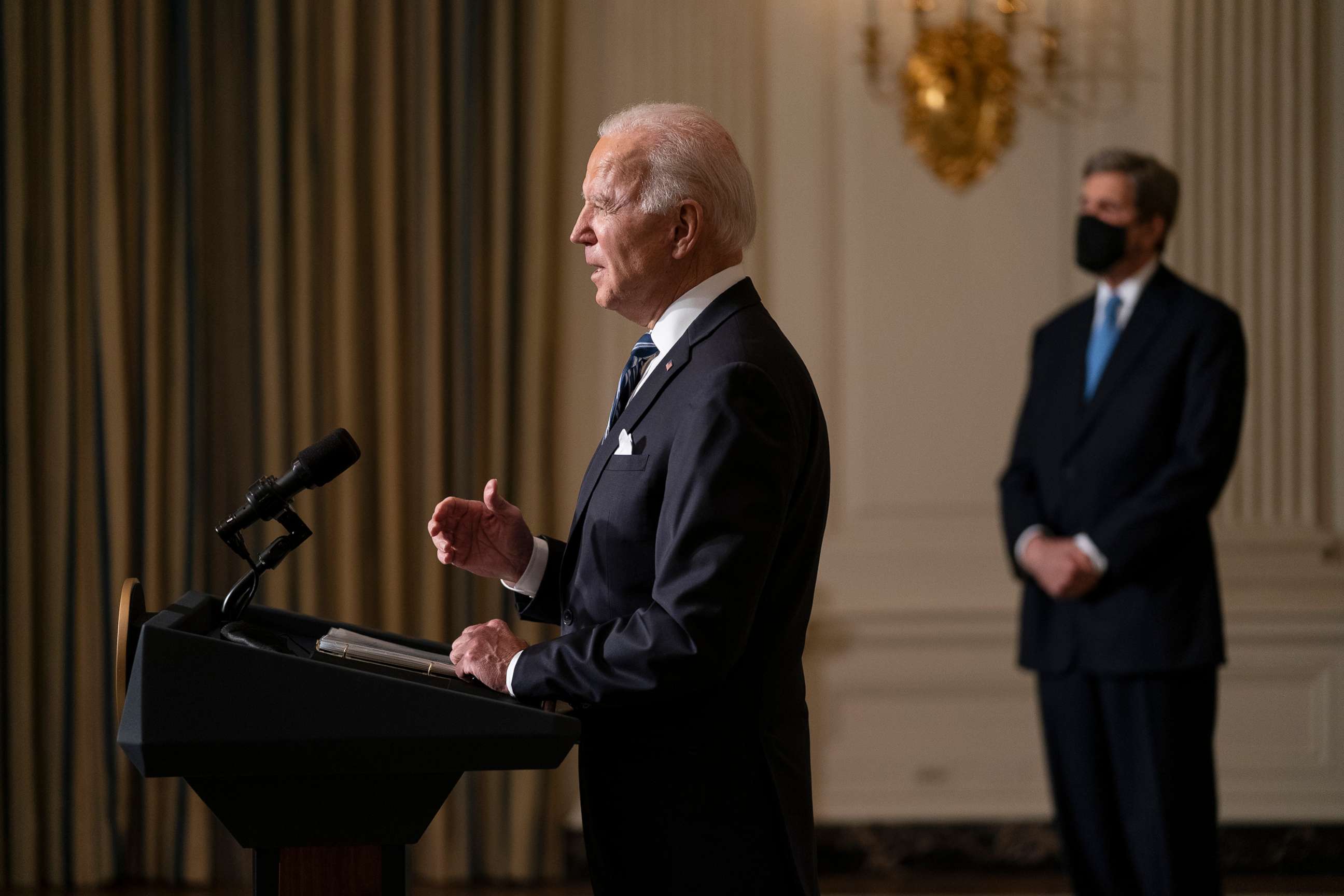Biden seeks to reestablish US leadership on climate with Earth Day summit
World leaders are set to meet in virtual climate talks this week.
Using Earth Day to relaunch the U.S. as a leader in the global effort to combat climate change, President Joe Biden is set to host world leaders for a virtual climate summit this week and is expected to announce a new goal for the U.S. to reduce its greenhouse gas emissions -- reportedly by perhaps as much as 50% by 2030.
The White House declined to provide information about the goal before the summit.
Biden and his special envoy for climate John Kerry have been working to push other major polluters like China, India, and members of the European Union to set similarly ambitious goals, many of which will be represented at the summit.
A senior administration official said Biden wants the summit to ensure the U.S. is coordinating closely with key international players on climate change.
"We really are taking the approach that we can only solve this crisis by working together. Preventing the climate crisis requires unprecedented global cooperation, and as well as a shared sense of urgency and ambition," the official told reporters.

All 40 world leaders invited with the White House are confirmed to attend the summit scheduled Thursday and Friday of this week, a senior administration official told reporters. Unlike a summit where leaders meet in person Biden is not expected to meet separately with representatives from any of the participating countries.
Over the two-day period multiple U.S. officials will speak including Biden, Vice President Kamala Harris, Secretary of State Antony Blinken, and special envoy for climate Kerry and national climate adviser Gina McCarthy. The leaders will discuss how the highest polluting countries can reduce carbon dioxide emissions, financial reform, innovation and making technology like carbon capture cheaper, and the economic benefits of investing in climate solutions.
The summit marks a major contrast with his predecessor President Donald Trump, who pulled the U.S. out of the Paris Agreement and was largely absent from global climate talks despite claims he would negotiate a better deal for the U.S. Many countries have announced new goals to reduce CO2 emissions in recent years but the U.N. has found it still isn't enough to limit global warming to the 1.5° Celsius goal set in the Paris Agreement.

A senior administration official said that they plan to emphasize that Trump's lack of engagement on climate change doesn't mean the U.S. can't be trusted to follow through and that the country's track record is still good overall.
"The fact that the last four years had a president that wasn't engaged does not diminish the fact that states, cities, businesses were actively moving forward," the official said, saying the country is pretty close to the trajectory set during the Obama administration.
Global CO2 emissions are projected to increase 4.8% in 2021, according to the International Energy Agency, erasing the drop in emissions during the pandemic while many people worked from home and avoided travel. While the amount of renewable energy being used around the world continues to increase there is also increasing demand for the use of fossil fuels like coal in China and other countries.




